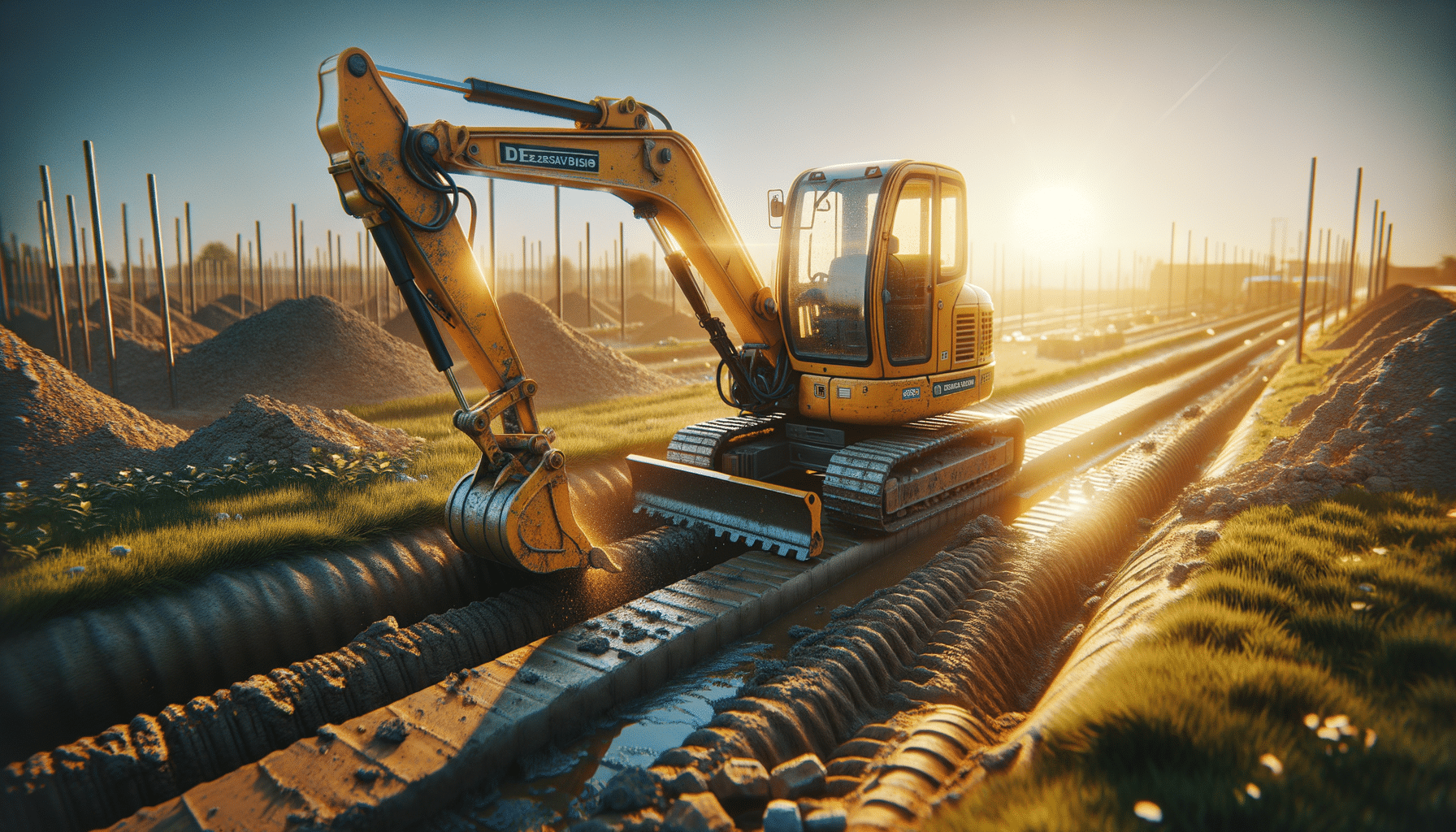
Discover the Versatility of Modern Mini Excavators
Introduction to Mini Excavators
In the evolving landscape of construction and landscaping, mini excavators have emerged as indispensable tools. These compact machines have revolutionized how small to medium-sized projects are approached, offering a balance of power and maneuverability that traditional excavators cannot match. Whether it’s a backyard renovation or a new garden installation, mini excavators provide the necessary versatility to get the job done efficiently.
Mini excavators are particularly valued for their ability to operate in confined spaces, a common challenge in urban construction and residential landscaping. Their compact size allows them to navigate areas that larger machinery cannot reach, reducing the need for manual labor and increasing productivity. Moreover, these machines are equipped with advanced features that make them suitable for a wide range of applications, from digging and trenching to material handling and demolition.
As technology advances, mini excavators continue to evolve, incorporating innovative features that enhance their capabilities and efficiency. This article delves into the key aspects of mini excavators, exploring their benefits, applications, and what to consider when selecting the right model for your needs.
Key Features of Mini Excavators
Mini excavators are designed with a range of features that make them suitable for various tasks. One of the most notable features is their compact design, which enables them to access tight spaces without sacrificing performance. This is particularly beneficial in urban environments where space is limited. Additionally, mini excavators are equipped with rotating cabs, allowing operators to have a 360-degree view of the work area, which enhances safety and precision.
Another important feature is the versatility of attachments that can be used with mini excavators. These machines can be fitted with a variety of tools, such as augers, breakers, and grapples, making them adaptable to different tasks. This versatility reduces the need for multiple machines on a job site, saving time and resources.
Modern mini excavators also boast impressive hydraulic systems that provide the power needed for heavy-duty tasks. These systems are designed to deliver smooth and precise control, which is crucial for tasks that require a high level of accuracy. Additionally, many models come with advanced technology such as GPS and telematics, which provide real-time data to improve efficiency and maintenance.
Benefits of Using Compact Construction Equipment
Compact construction equipment, including mini excavators, offers several advantages over larger machinery. One of the primary benefits is cost efficiency. Compact equipment is generally more affordable to purchase and maintain, making it an attractive option for small businesses and contractors who may not have the budget for larger machines.
Furthermore, compact equipment is easier to transport, which can significantly reduce logistics costs. Their size allows them to be transported on smaller trailers, and they can often be towed by standard pickup trucks, eliminating the need for specialized transport vehicles.
In addition to cost savings, compact construction equipment is known for its environmentally friendly operation. These machines typically consume less fuel and produce fewer emissions compared to larger equipment, aligning with the growing demand for sustainable construction practices. Their reduced environmental impact makes them a popular choice for projects that require adherence to strict environmental regulations.
Applications of Small Diggers
Small diggers, or mini excavators, are incredibly versatile and are used in a variety of applications across different industries. In construction, they are often employed for tasks such as digging foundations, trenching for utility lines, and site preparation. Their ability to perform precise digging work makes them ideal for projects that require careful handling of the surrounding environment.
In landscaping, small diggers are used for tasks such as creating garden beds, installing irrigation systems, and shaping terrain. Their compact size allows them to work around existing structures and plantings without causing damage, which is essential for maintaining the aesthetics of a landscaped area.
Additionally, small diggers are used in agriculture for tasks such as ditching, drainage, and land clearing. Their versatility and ease of use make them a valuable asset for farmers looking to improve land efficiency and productivity.
Choosing the Right Mini Excavator for Your Needs
Selecting the right mini excavator involves considering several factors to ensure it meets the specific requirements of your projects. First, consider the type of work you will be performing and the attachments you may need. Different models offer varying levels of compatibility with attachments, so it’s important to choose one that aligns with your intended use.
Next, evaluate the size and weight of the mini excavator. While compactness is a key advantage, ensure the machine is capable of handling the tasks you plan to undertake. It’s also important to consider the operating environment. If you anticipate working in areas with limited access or rough terrain, look for models with enhanced traction and stability features.
Lastly, consider the technology and features offered by the mini excavator. Modern models come equipped with advanced technology that can improve efficiency, such as GPS systems and telematics. These features provide valuable data that can help optimize performance and reduce downtime. By taking these factors into account, you can choose a mini excavator that provides the best balance of performance, versatility, and value for your needs.


